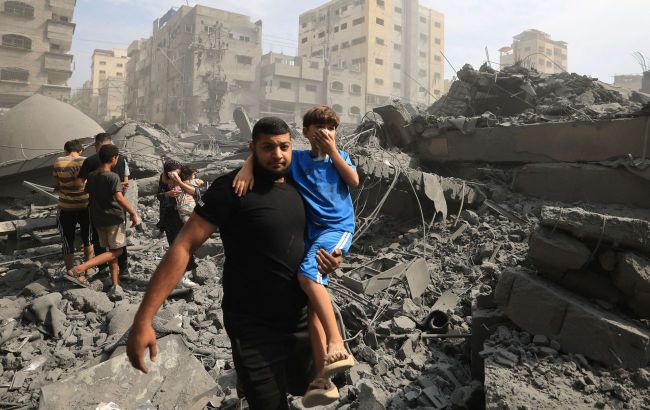Hamas announces new ceasefire plan
 The Palestinian group may hand over all hostages to Israel (Photo: Getty Images)
The Palestinian group may hand over all hostages to Israel (Photo: Getty Images)
The Palestinian group Hamas is willing to release all remaining hostages in exchange for a permanent ceasefire, reports The Times of Israel.
A senior Palestinian official familiar with the ceasefire negotiations told the publication that despite Israel’s long-standing refusal of such an exchange, Hamas is still willing to release some hostages in exchange for an extension of the temporary truce.
At the same time, according to the official, the group seeks assurances from mediators that Israel will eventually agree to enter talks for a permanent ceasefire - something Prime Minister Benjamin Netanyahu has so far refused to do.
Palestinian proposal conditions
In particular, Hamas insists on adhering to the initial terms of the January agreement, which would lead to the second phase starting on March 2. This phase includes the return of all living hostages in exchange for the full withdrawal of Israeli forces from the Gaza Strip and the final cessation of the war.
It is noted that although Netanyahu signed the agreement, he long rejected the last two points of the second phase, arguing that this would allow Hamas to remain in power. Accordingly, the Israeli prime minister practically abandoned negotiations on the second phase of the agreement, which were supposed to begin on February 2. Israel resumed intensive military operations across the Gaza Strip on March 18.
While Hamas had long refused to accept proposals to extend the first phase of the agreement, a senior Palestinian official recently informed The Times of Israel that the group has now made such a proposal.
When asked why Hamas is willing to propose an extension of the first phase after previously insisting it would only release additional hostages in the second phase, the senior Palestinian official replied: "We had no other choice. The situation in Gaza is terrible." According to the Times of Israel, this is clear evidence that Israeli military pressure and the ban on humanitarian aid entering the enclave have had an impact.
Analogies with US Proposal
A senior official stated that Hamas's latest proposal is very similar to one presented last month by US Special Envoy for the Middle East, Steve Witkoff, which would ensure the release of five Israeli hostages. However, the proposal also included guarantees from mediators that Israel would agree to negotiate the second phase of a permanent ceasefire as soon as the truce is extended.
Israel rejected Hamas's latest proposal and put forward its own, which requires the release of 11 hostages but does not include a commitment to negotiate a permanent ceasefire, according to the Palestinian official, who added that this is unacceptable to the group. "The talks are now at a standstill."
"The number of hostages is not the issue. If Israel demonstrates its intention to reach a permanent ceasefire, [Hamas is] prepared to release all of the hostages. Israel only wants a partial agreement so that it can continue fighting. It wants [Hamas] to give up all the hostages without entering the second phase," said the Palestinian official.
Collapse of the ceasefire in the Gaza strip
The ceasefire reached between Israel and Hamas on January 19 was broken in mid-March. The cause was Hamas' refusal to hand over Israeli hostages and the Israeli government's conclusion that the militants had violated the ceasefire agreement.
At the end of March, the Israeli army began a ground operation in Rafah to expand the security zone.
The Israel Defense Forces (IDF) did not rule out conducting another ground operation in the Gaza Strip.

